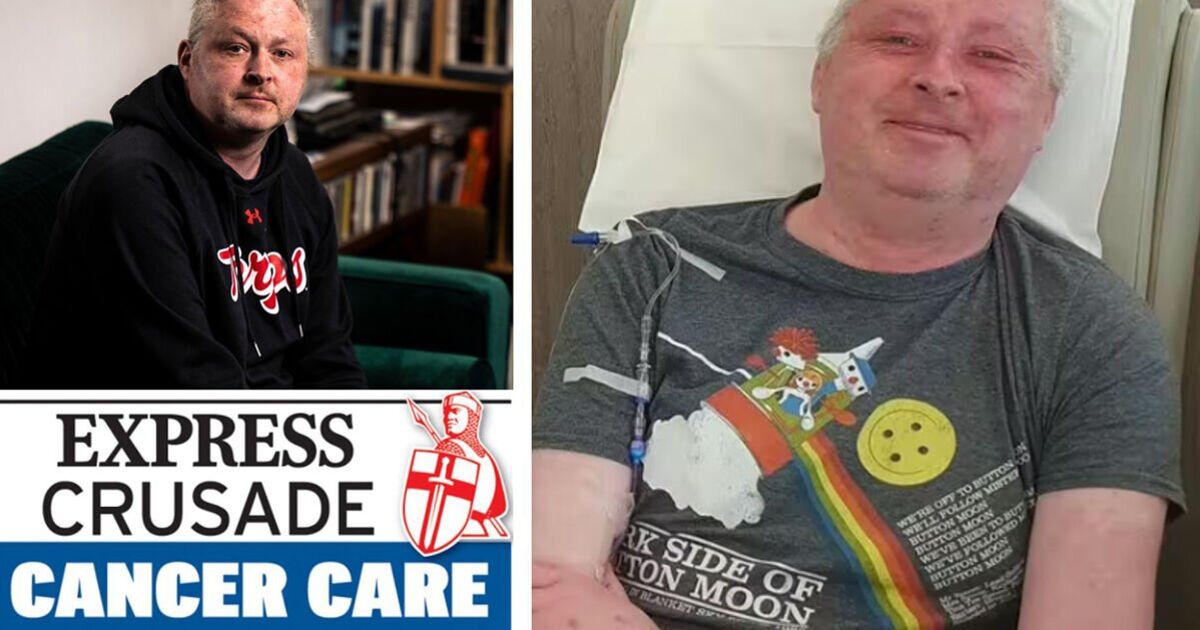Have you ever wanted to ask someone a question but have bottled it at the last second?
Sometimes it can be tricky to get out of, like if you’re down on one knee to propose and have to pretend to then be tying your shoelaces, even though you’re on holiday and are wearing sandals on the beach.
Other times a simple “never mind, it doesn’t matter” suffices, leaving the other person perplexed as to what it was all about.
Part of me wonders whether this is what’s going on in NHS hospitals across the UK.
Last time I was preparing to have chemotherapy the nurse looking after me asked the usual questions about side effects of my treatment.
She asked whether I was eating okay and I joked about Hula Hoops.
She asked if I’d fallen over in the past two weeks and I tried to remember if I had.
She asked about diarrhoea and I had to not remember I was surrounded by other people having treatment so I could tell her about having to predict when it will happen, without feeling too embarrassed.
Then when she asked about nausea and vomiting I had to work out whether it was worth talking about sickness which was probably unrelated to my treatment.
Crucially, I’m sure I spied a question on her computer screen which included the words psychology and mental health.
(This means that, hopefully, it won’t be too much of a stretch for the NHS IT folk to add a better question about mental health on to hospital systems used when treating patients.)
I cannot tell you what the question was because I wasn’t asked it. Instead the nurse just clicked the “yes” option, with the other choice available to her being “no”.
Did the nurse want to ask that question but was afraid of what I’d say or how best to respond?
I understand that talking about mental health issues is difficult, especially in a room full of strangers who are all going through harsh chemotherapy treatments and trying their best to survive.
Nurses in treatment units spend a lot of time getting to know their patients so, in a lot of circumstances, will be the ones who detect when someone’s mental health has dipped.
But at the Daily Express we don’t think it’s right that the burden of responsibility for detecting mental health problems should be on their shoulders.
Instead, as part of the Cancer Care campaign we are calling for a cancer patient’s medical team to be asking the patients how they are feeling emotionally and mentally, as a key part of the consultation they have before each treatment cycle. We’re also calling for a holistic needs assessment that takes mental health into account to be performed for every NHS patient who is diagnosed with cancer.
Whether this is done either in a face-to-face appointment or over the phone doesn’t matter as much as what the results are after the questions have been answered.
If a patient is having any kind of emotional difficulties then they should be referred to someone who can help them cope with that side of the treatment, whether that be a counsellor, a psychologist, or even just a support group full of like-minded people who have faced the same issues.
This will especially help as patients grapple with anxiety-inducing stages of treatment like waiting for scan results and other moments too like trying to cope with the guilt of missing their best friend’s “big” birthday because they were feeling too sick to leave their home.
Any cancer hospital chief executives reading this should lead the way by instructing their medical teams to ask questions about mental health, as it will help improve the lives of their patients.
And the Department for Health and the NHS need to work on making this change happen at all cancer units across the country.












